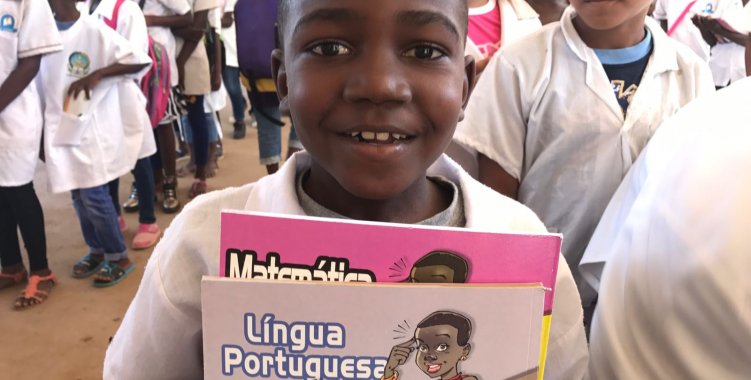In this chapter, the classes previously suspended due to the first Provisional Legislative Presidential Decree that was renewed on the 25th of May with the first national Emergency State Decree. Teaching activities will begin again on July 13, with the opening of higher education institutions and the second cycle of secondary education, and from July 27, the restart of the first cycle of secondary education and primary education. The restart of the operation of pre-school education is subject to its own regulation as disclosed by the newspaper DW.
With the return date for classes set, students, parents and educators concerned with the situation in the country and the way the teaching and learning process takes place, discuss the direction of education in post-covid-19 Angola. In this scenario, questions such as: “What is the ideal way to provide learning in the same academic year? What improvements do you expect in the education sector? What is the importance of the school space for learning? Physical presence, social interaction? What is the impact of the pandemic / isolation on thinking about classroom / distance education in Angola?
These issues are no exception to the many debates around education in Angola. This article reinforces the discussion about how teacher training in Angola should be. The traditional teaching that many schools still face in the face of today's challenges. What should be the role of parents in their children's education. The lack of political will to solve the problems of education and other issues related to teaching.
In view of the scenarios we find ourselves in, at first, it is necessary to bring the student community together and rethink a new teaching model that covers the hours stipulated at the beginning of the year, in order to create an interconnection with the contents that should be addressed, and this presupposes thinking about general reorganization of the school year opening new possibilities for ending in 2021 without harming students. We must now think about developing competences, skills and attitudes according to the situation that everyone went through and the reorganization of the system should be done in modules and stages of learning.
As Paulo Freire stated: “Education is a process, where the one who teaches learns when teaching and the one who learns teaches when learning”. Education is a right of every citizen as enshrined in the Constitution of the Republic of Angola. During social isolation, it was possible to complement teaching, even through television classes. However, this education happens better when there is a bond that, by the way, was broken for months by the covid-19. The face-to-face education modality is fundamental because it allows students in a given institution to experience the sensations of being there through physical contact with teachers, colleagues and employees of the establishment, so this modality adds healthy cultural and social values to build a society where the individual is concerned with the community.
Covid-19 leaves us with a new way of thinking about schools in Angola, and opens a new process of valuing them. During the pandemic, the guardians' testimonies and outbursts were recorded, and the difficulty they had in complementing the children's education was notorious, and the lack of a place of study that has served as a shelter as the children were used to - the school.
It was realized that distance education should not yet be seen as one of the alternatives for a new teaching model in Angola, in addition to being ineffective, many families do not have technological resources to meet the demand, in addition to the lack of preparation on the part of teachers , the country does not have Internet access capabilities that favor the most vulnerable student communities. Therefore, it will be necessary to start thinking about how technology can help in the teaching-learning process.
As for the role of families, during social distance, we perceive the responsibility that the caregivers delegate to schools, however it is necessary that families start to participate actively in their children's school life and closely monitor their studies in order to help in the process teaching and learning. With that, we would have more children genuinely interested in learning, with that the appreciation of schools and teachers is expected. In this way, we would be in agreement with Perrenoud when he states that: “To educate first of all is to mobilize the student to become an apprentice” this mobilization is also expected of those in charge of education, although it is the duty of the state to guarantee it.
Therefore, 2020 will be a historic and decisive milestone in Angolan education. It will be necessary to start thinking about the resolution of educational problems, and this demands ensuring investments and the creation of public policies in the sector, as stated by the Minister of Education at the opening of the academic year, to guarantee true quality education in the country. New methodologies that need to be adopted for teaching, and it will be necessary to enable the construction of more schools to eliminate at once the number of students outside the education system, more universities for staff training and access to higher education, it will be necessary to provide and develop teaching, research and extension activities, and also improve access to computers and the Internet, and develop suitable materials, teach how to study at a distance, format control, monitoring and evaluation mechanisms.








